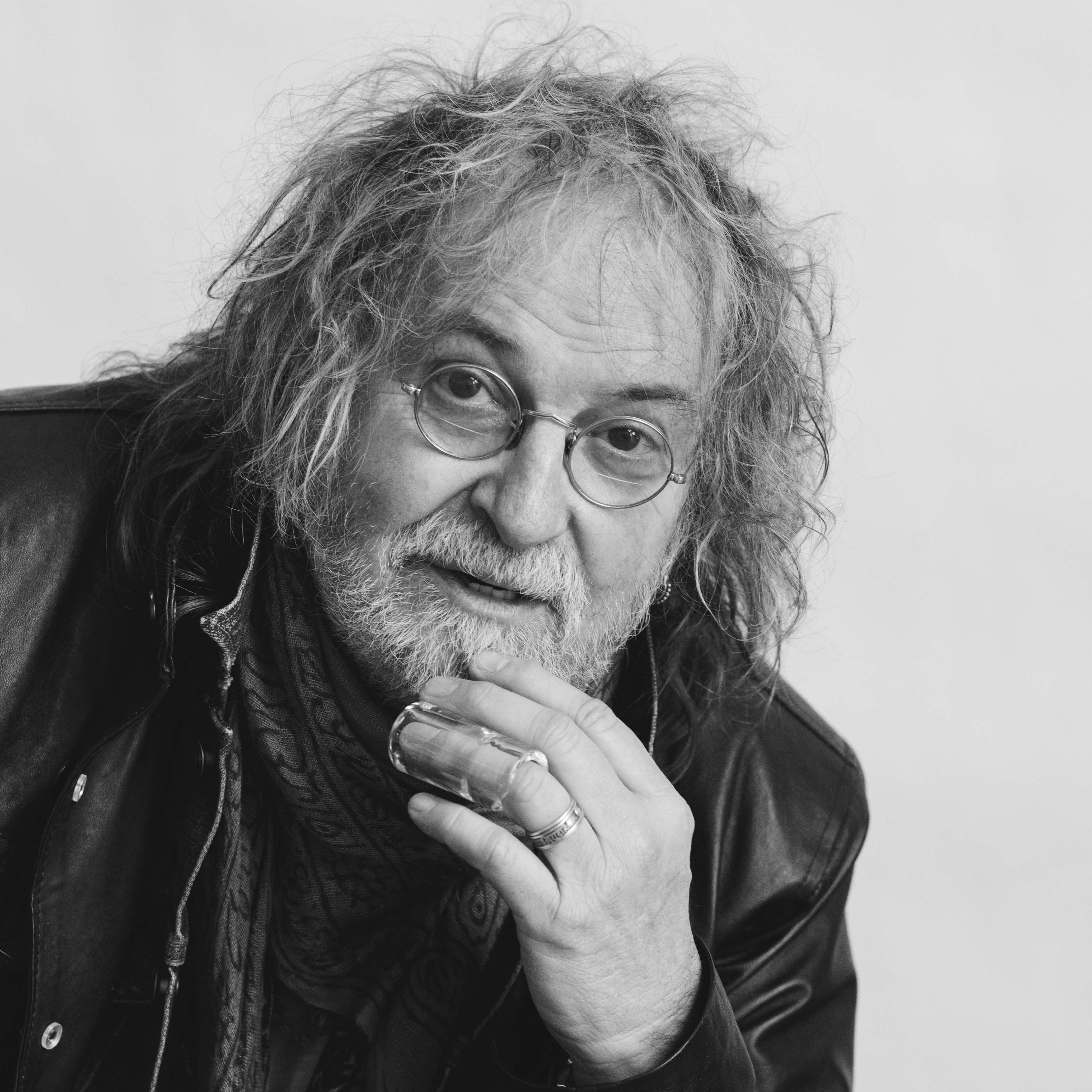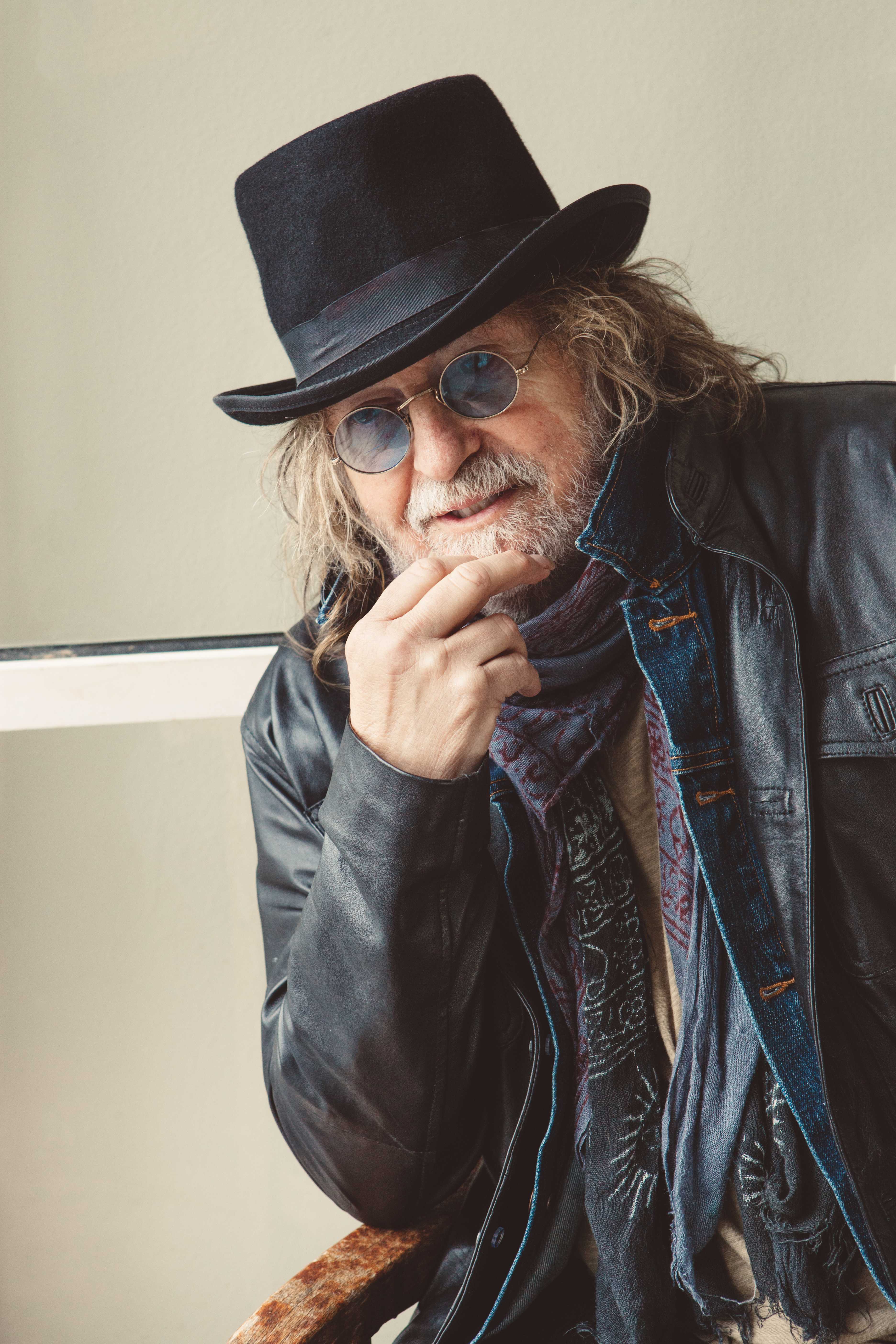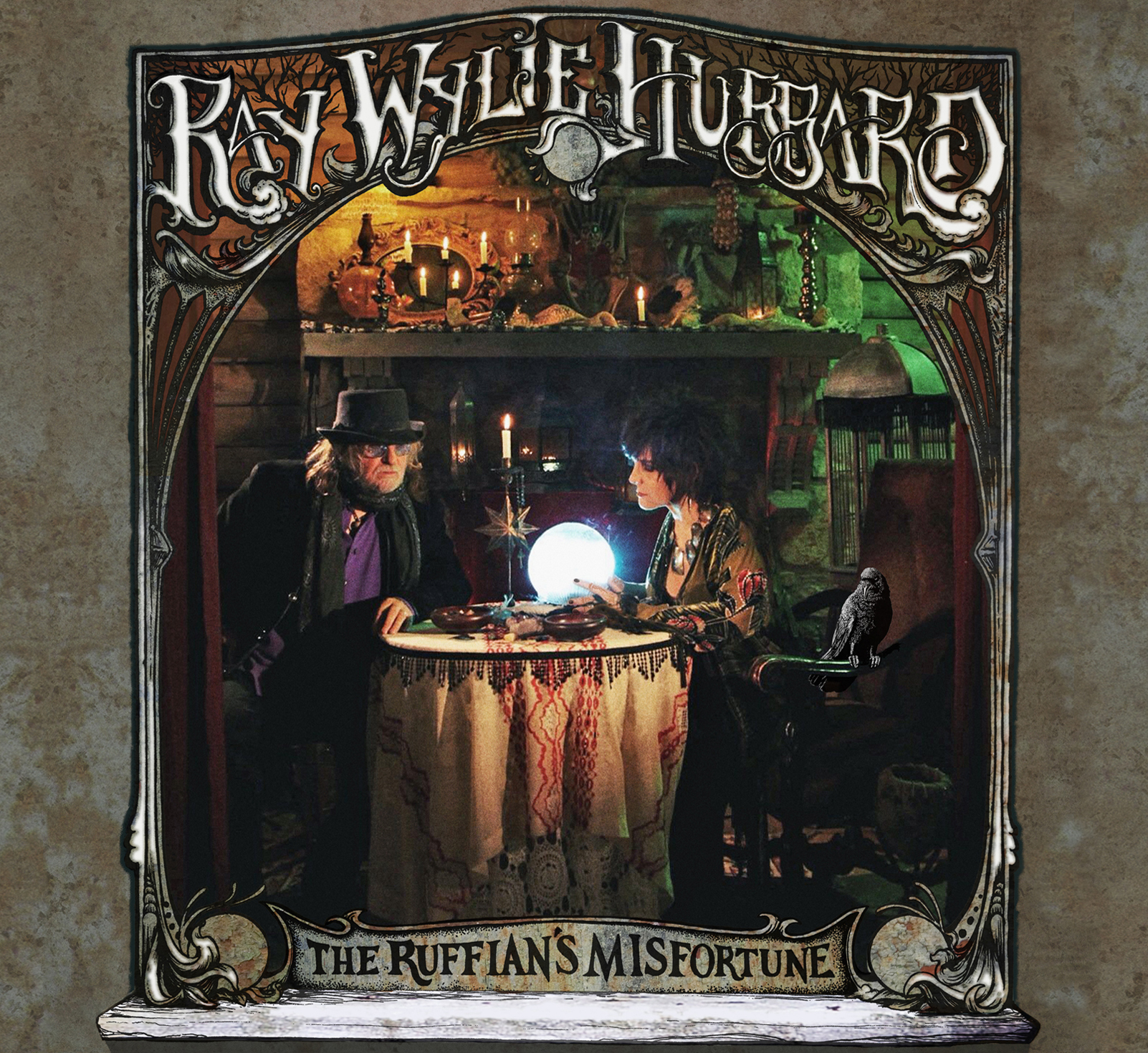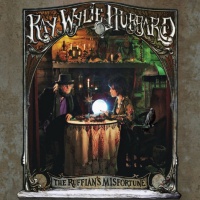July, 2015
 If one lives – or has ever lived in the state of Texas in the fifteen or twenty years – and you love music, chances are better than even that you just may have heard (or heard of) Ray Wylie Hubbard. Well, wait a minute. If you were a Jerry Jeff Walker fan back in the early seventies, you may have heard a song that he recorded of Ray’s called, “Up Against The Wall, Redneck Mother”.
If one lives – or has ever lived in the state of Texas in the fifteen or twenty years – and you love music, chances are better than even that you just may have heard (or heard of) Ray Wylie Hubbard. Well, wait a minute. If you were a Jerry Jeff Walker fan back in the early seventies, you may have heard a song that he recorded of Ray’s called, “Up Against The Wall, Redneck Mother”.
As the title of that song surely indicates, Hubbard is not afraid to be a bit, uh, how should we say this? Controversial? In your face? Shocking? Personally, I prefer to call him raw, gritty, and funnier ‘n, well, Texas in the summer time. And while many of you may not have heard of him until now, it’s only because you missed his appearance on The Late Show With David Letterman or just haven’t caught one of his shows around the country as he becomes increasingly well known.
In support of Ray’s latest album, “Ruffian’s Misfortune”, I was afforded the opportunity to chat with him by phone while he and his wife were enduring bad weather in Central Texas. Despite the weather causing our call to drop a few times, he was good natured and very gracious during the call and was a hoot to chat with.
I started out by asking Ray to tell Boomerocity readers who may have not heard of him to tell a little bit about himself in his own words.
“I’m an old funky cat. Still writin’ them old songs, still out there doin’ it. I started off{mprestriction ids="*"} in folk music in high school in Dallas. I went to high school with Michael Murphy, B.W. Stevenson, and Larry Groce. We got involved in folk music. There was a great folk scene around Austin and Houston. I started playing acoustic guitar and got a little folk group. We played our circuits here. The lyrics were very important to me. You discover Bob Dylan and Woody Guthrie, and you go back to Lead Belly. I was also very fortunate to have seen Lightnin’ Hopkins, Mance Lipscomb, and Freddy King. So those deep blues have always been there, but I didn’t really get into playing until my forties. I decided I was going to try to be a real songwriter, and I wanted to write songs that didn’t compromise what I wanted to write about. I wasn’t going to writer for other people to record or write for a publishing company. I just wanted to write cool songs. Today, I’m in a very fortunate place where I feel like my lyrics have some depth and weight and humor. I’m moving with a deep groove that has its foundation in country blues. That’s kinda where I’m at and what I’m doin’.”
With the rise in popularity of Americana music, I asked Hubbard if he considers his music to be part of that genre.
“About ten years ago, Americana was Lucinda Williams, Sam Bush, Gillian Welch, and me. That was about it. Now, you’ve got guys like Robert Plant using that as a label, because it has a lot of integrity to it. It’s not mainstream. It’s music that comes from a different place than just trying to fill a pocketbook.
"I’ve never been a country singer ever, but I’ve been influenced by good country music. I’m not a folk purist or traditionalist, but I got started off in folk music. I really appreciate the integrity of the lyrics. Of course, I’m not a blues cat out there, but I’ve been influenced by it. I’m too old to be a rock ‘n’ roller. I’ve been influenced by all of that- folk, blues, bluegrass, country, roots rock. I’m not one particular genre.”
I love “Ruffian’s Misfortune” (read the Boomerocity review of it here) and asked what had been the receptivity to it, to date.
“It’s been really, really good. Nice reviews, and it’s number two on the Americana charts. It’s done really well, and there’s been a really good response. I’m very happy with it. I had a lot of help. George Reiff and Rick Richards were the rhythm section. They’d been out with Joe Walsh for about a year, so they were just phenomenal. Also, my son, Lucas, and a kid named Gabe Rhodes are my two guitar players. Everybody stepped up. I brought the songs, and these guys took them to a great place. I feel very fortunate. I can’t recommend this for everybody, but I sleep with the president of the record label. I’m not talking about Clive Davis. I’m talking about my wife, Judy. Judy says, ‘Write whatever you want to write, and I’ll try to sell the damn thing’.
"To a writer, as you know, that’s a really good place to be. I’m not writing for a publishing company or trying to get someone to cut my songs. I’m not thinking about the future of it. I can write songs about Charlie Musselwhite, the drug cartels in Mexico, or even do a gospel thing with ‘Barefoot In Heaven’. I’m very grateful to be able to write not thinking about what’s going to happen to the song. I just try to write the best song I can.”
I knew you readers would want to know so I asked for you: What’s the story behind the title?
“I wanted a title that sounded like if you went into an old used bookstore and found an old American novel. I wanted it to sound like ‘A Tale of Two Cities’ or ‘The Tell-Tale Heart’ or ‘The Last of the Mohicans’. ‘The Ruffian’s Misfortune’- it just sounds like an old, dusty book from the 1800’s. I just really liked the way that sounded. I enjoy stuff like that.”
When I asked Ray to tell me a little bit of the album from his perspective, his humor came through loud and clear.
 “It’s not a concept album, of course. There’s kinda this theme, being an old cat, of thinking about your mortality. The idea behind it is that I hope God grades on a curve. A C- minus may not get me into heaven, but maybe it will get me into some kind of celestial vocation school or something. I’m not Mother Teresa, but I’m not Attila the Hun. There are gospel songs on there, ‘Barefoot In Heaven’ and ‘Stone Blind Horses’, that talk about that."
“It’s not a concept album, of course. There’s kinda this theme, being an old cat, of thinking about your mortality. The idea behind it is that I hope God grades on a curve. A C- minus may not get me into heaven, but maybe it will get me into some kind of celestial vocation school or something. I’m not Mother Teresa, but I’m not Attila the Hun. There are gospel songs on there, ‘Barefoot In Heaven’ and ‘Stone Blind Horses’, that talk about that."
How was making this album different from making Hubbard’s first album?
“The first album I wasn’t that happy about. We made a record in Austin that got us a bunch of record offers. Back then, if someone from the record label called, you had to say yes. They gave you the money to do it, and they had a lot of control over it. All my early albums came with excuses duct taped to ‘em: ‘We ran out of money’ or ‘they put steel guitars and girls singing on a song while we were gone’ or ‘they put out the wrong cover’. ‘Loco Gringo’s Lament’ was the first record I could hand to somebody, and look them in the eye to say, ‘Here it is’. It came with no excuses.
"With ‘The Ruffian’s Misfortune’, the idea is that you may not like the singer of the songs, but you’ll like the way it sounds. It sounds really good. We really wanted it to sound like real people really played. We didn’t use Auto-Tune or a lot of pedals. We just plugged it in and played. I think that’s the difference now. I have this incredible freedom to record whatever I think is best for the song. On the earlier albums, there were still conditions. I was under a time limit or whatever. The albums now, I go ‘Here they are. Like it or don’t’.”
When I asked Ray how the songwriting was different on this disc as compared to his previous albums, he said:
“I think I’ve learned about songwriting- the inspiration and the craft. The inspiration is finding a good idea for a song. The craft is taking that inspiration and having the knowledge on the guitar to know where it’s going to go. Even though I’m an old cat, I keep learning new things. I learned how to finger pick at age 42. Then I learned open tuning, Resonator, and mandolin. By learning new things, it gives the song a door to come through that wasn’t there before. If I hadn’t learned open D tuning, I wouldn’t be able to do all these things right. For me, it’s very important to learn new things and keep expanding my vocabulary in music.”
Artists usually refuse to name a favorite song from their albums because it’s much like asking them to pick one of their kids as their favorites. However, I did ask which song from “Ruffian’s Misfortune” would he offer as a calling card for the album to entice people to want to check out the rest of it.
“I would say ‘Stone Blind Horses’. I’m very happy with that song. It’s kind of a personal thing, and it’s definitive of where I’m at right now.”
Ray is working with his son, Lucas, on the road. I asked what it’s been like for him.
“I have a lot of respect for his playing. I’m very fortunate that he was influenced by guitar players other than me. He’d go see Buddy Miller, Joe Walsh, Charlie Sexton- all these great Austin guitar players. He doesn’t just have my gnarly old stuff. He’s got a lot of taste in what he plays. He doesn’t show off. He just plays the song, and he plays from the place of a true poet guitar player.”
As for what he hopes listeners and fans will take away from “Ruffian’s Misfortune”, Hubbard said:
“Songwriting is a joy and anguish. You anguish over it to make sure it’s right. A song like ‘Snake Farm’- I feel like it’s a well-written song. It’s a joy when it works. I hope that when people listen to it, they appreciate the song writing. Also, I hope they acknowledge that the musicians who played on it are just stand-up musicians. I hope they go, ‘Wow, he’s an old cat, but he’s still writing some damn good songs with great players’.”
As for what current and prospective fans can expect from a Ray Wylie Hubbard show, the songsmith said:
“They can expect to have the time of their life if they eliminate roller coasters, fireworks, and sex. Kyle Schneider lays down a deep groove. My son, Lucas, plays really tasty, cool licks. Every once in awhile, I’ll say something funny in between songs. We’ll have a good time.”
Knowing that Ray had worked with and hung out with Willie Nelson a lot, I asked about that relationship.
“I’ve known Willie since forever. I’ve always played his picnic. One time, Willie kidnapped me, put me on his bus, and took me to Milwaukee with him. A couple of his roadies picked me up and put me on the bus. Next thing I know, I’m in Knoxville on the way to Milwaukee or someplace to play a beer fest. The thing about Willie, man, is he is an icon, of course. But at the base, he’s still a songwriter. No matter how old you get or whatever you do, that’s still in you. That’s very inspirational to me.”
On comparing “Outlaw”/Red Dirt country versus Nashville, Ray had this to say:
“I play Nashville and Tennessee, and I have incredibly nice audiences. But there’s a difference between Austin and Nashville. Nashville songwriting is a livelihood. You make money by writing songs. In Austin, it’s a lifestyle. Songwriters in Texas aren’t writing to get cash or hits. They’re writing songs because they have no choice.
"People ask me, ‘Who do you listen to?’ Actually, I listen to my friends. Hayes Carll, Sam Baker, James McMurtry- guys like that. I feel very fortunate to know them and consider them friends.”
In sharing what is on his career radar for the foreseeable future, Ray said: 
“I got a book coming out in July. It’s kind of a memoir and instructional book on songwriting. Then I’ve got an instructional video I’m going to be doing for people asking about my ol’ guitar playing. I’m writing songs for the next record. I have about four or five finished, so I’ll record sometime later in the year. With touring, I’m keeping busy.”
Ray Wylie Hubbard undoubtedly has many more years of music and touring left to go but I asked him about, when he steps off the tour bus called life and goes the great gig in the sky, how does he want to be remembered and what does he hope his legacy is.
“‘He was a cat who preferred spirituality to religious conversion’. I don’t really think about it like that. I enjoy writing these songs to see what I can contribute to other people’s lives. I like to see if I can bring joy to someone’s life. When I play a gig, I like to see people laugh, dance, and sing along.”
Keep up with all things Ray at www.raywylie.com.{/mprestriction}

